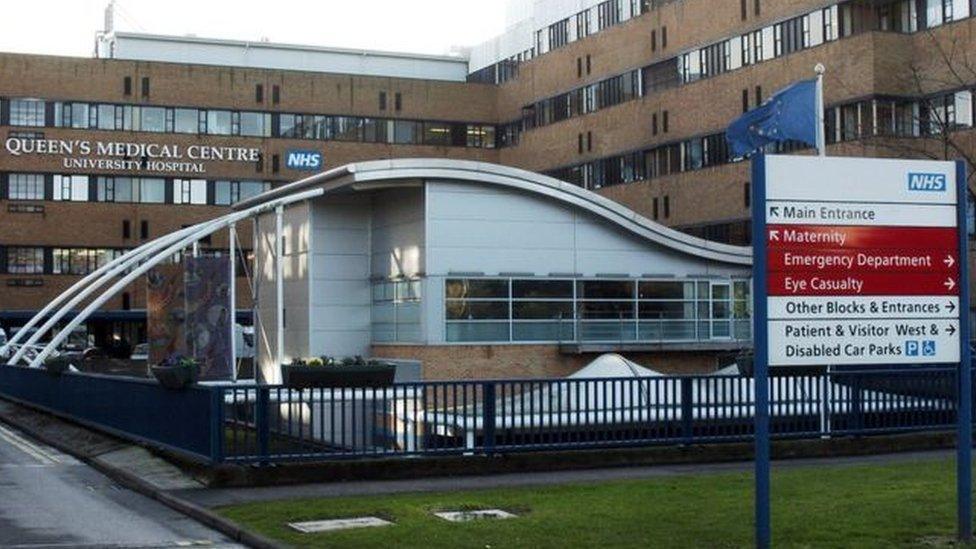General election 2019: Your NHS stories
- Published
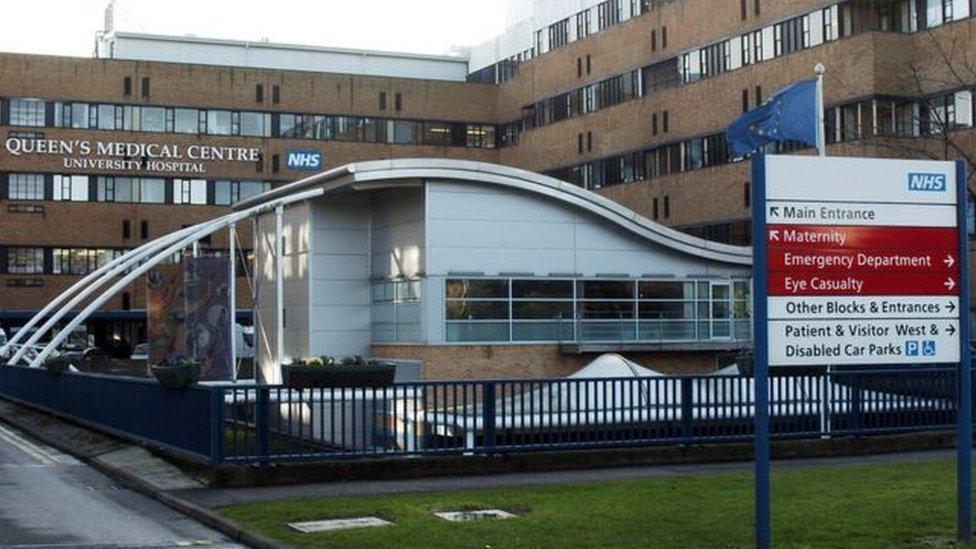
The BBC spoke to some young people outside the Queen's Medical Centre about what NHS issues matter to them
With election campaigning in full swing it is clear the National Health Service is yet again one of the key topics for debate.
BBC News went to Nottingham to speak to young people about their experiences of the NHS and what they wanted their elected leaders to do about it - and many told of their worries for the future of a service they believed was under pressure.
Hannah Spencer, a 25-year-old mother-of-three, said she loved the NHS. "But it's underfunded - I think it's struggling," she added.
"It seems like people are pushed, constantly rushing around.
"The nurses and doctors are brilliant but it's almost like they're getting frustrated because they know what to do and [it's] just the lack of resources to do it."
Miss Spencer said she had seen this for herself having spent the past few weeks in and out of hospital. Her son, Caspian, was born in October with gastroschisis - meaning his intestines were exposed.
She said her local hospital in Derby was not equipped to cope with his condition so they were sent to Nottingham's Queen's Medical Centre for the birth.
But she said two days beforehand she had to decamp to Cambridge - a two-hour drive away - because of a lack of beds. She was not back to the QMC for three weeks.
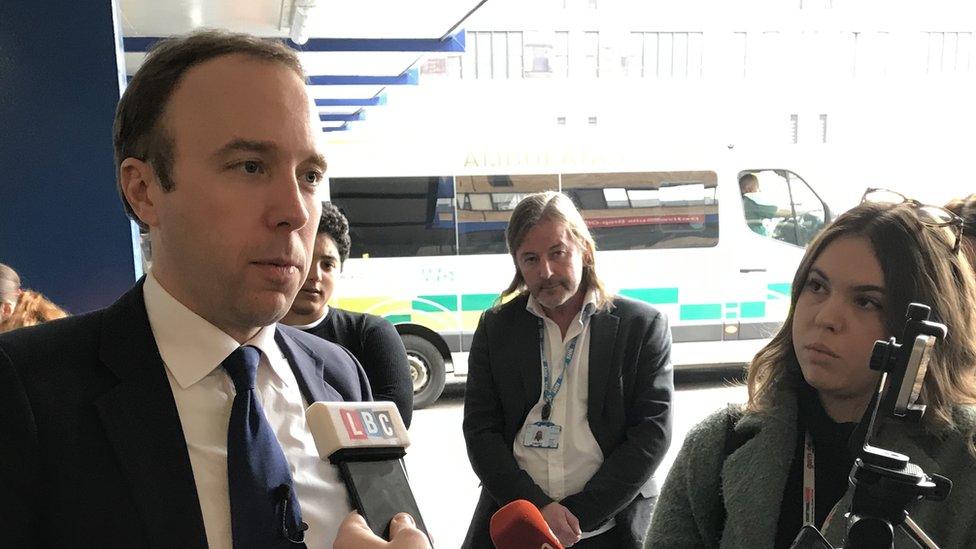
Health secretary Matt Hancock visited the hospital this week
Nottingham University Hospital Trust apologised to Miss Spencer for the "regrettable" transfer, recognising the "additional stress this will have caused".
A spokeswoman added: "Unfortunately in times of high demand when our neonatal cots are occupied, we do have to send babies to other centres for neonatal care."
Miss Spencer said her message for politicians would be: "Please help the neonatal department, give them some funding. The whole NHS needs more support."
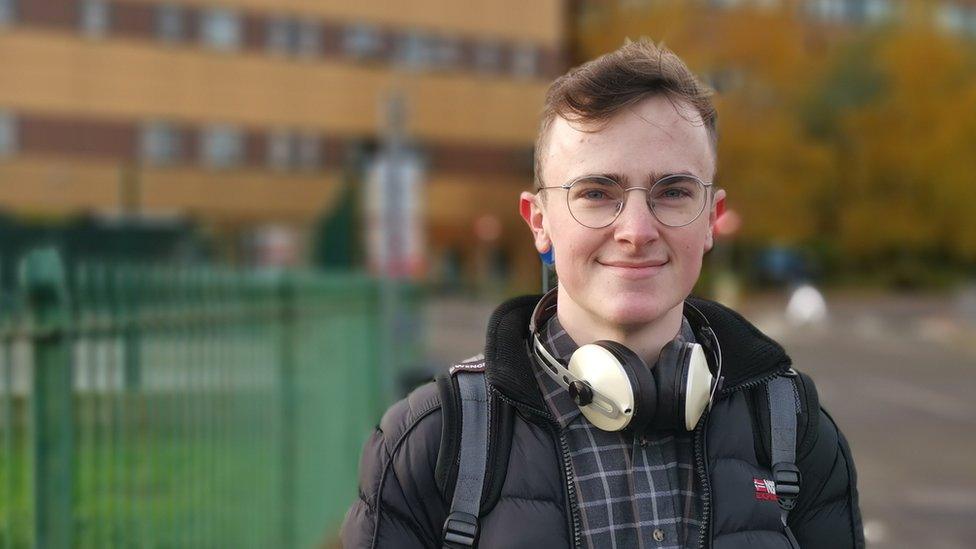
Andrew Shaw is still waiting to find if he has multiple sclerosis
Andrew Shaw, a 20-year-old chemical engineering student, said he had the "utmost respect for the people who work in the NHS".
But, like Miss Spencer, his experience meant he thought it needed more funding.
He has had to wait more than a year to find out whether or not he has multiple sclerosis.
He told the BBC after he experienced headaches and nerve pains, he was booked in for a scan in June last year. He said he was called the next month to say he might have the condition but more tests were needed.
Although he has now been told it was unlikely to be MS, he needed another scan to confirm it. He said he had waited more than six months for the scan and still did not know when it would happen.
According to the MS Society, one in four people with the condition have to wait more than a year for diagnosis and it said the "unacceptable" delay was caused largely by a lack of specialists compared with other European countries and long wait times for MRI scans.
Mr Shaw said: "If they built more hospitals and employed more doctors and nurses, that would relieve some of the pressure. I'm willing to pay for it through more taxation."
Support for nurses
Neuroscience students Rachel Branch, 21, and Jenna Clark, 22, both said the health service was one of the most important topics for them in this election.
They said nurses in particular needed more help after bursaries were cut in 2017.
Miss Clark said nurses were the "pillar" of hospitals and she had seen how important their work was when her grandmother was in hospital.
"She saw a doctor once a day for five minutes but a nurse was always there to make sure she was comfortable. They worked so hard and completely changed our experience," she said.
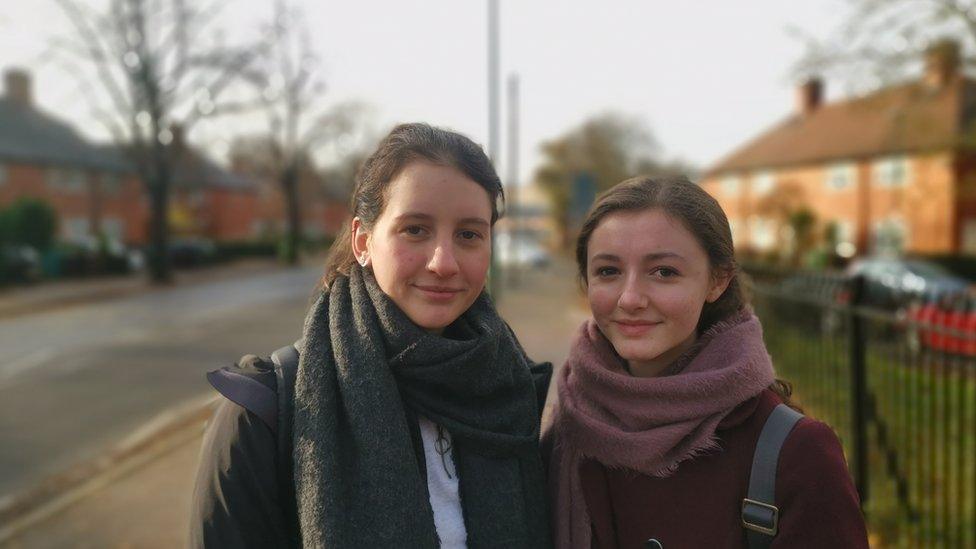
Jenna Clark (left) and Rachel Branch (right) think the NHS is one of the most important election issues
There were 39,500 nursing vacancies in the NHS in England, according to most recent figures from NHS Improvement, external.
"It's terrifying they've stopped funding nursing degrees," Miss Branch said. "They don't pay them enough and they have no incentive, why would people want to become one?
"I want my politicians to make sure they're actually funded well enough."
'Everyone was caring'
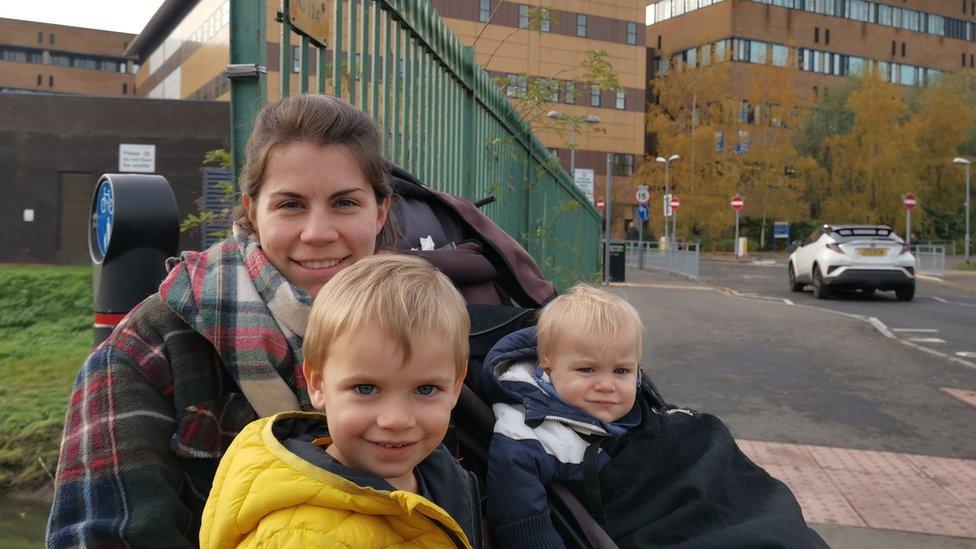
Aga Thwaits is concerned how much time NHS staff spend on paperwork
Aga Thwaits, a 28-year-old mother-of-two, had both her children in NHS hospitals and said "everyone was very caring and the facilities were great".
Her main concern was how much time was wasted on paperwork, after receiving letters as well as texts to remind her of appointments.
"It shocked me," she said. "They need an app, all that paperwork is such a waste of time."
What do voters care about?
According to polls, the most important factor for voters this election remained Brexit.
But the NHS continued to feature heavily in headlines and manifestos and was the public's second most important issue, according to Ipsos Mori.
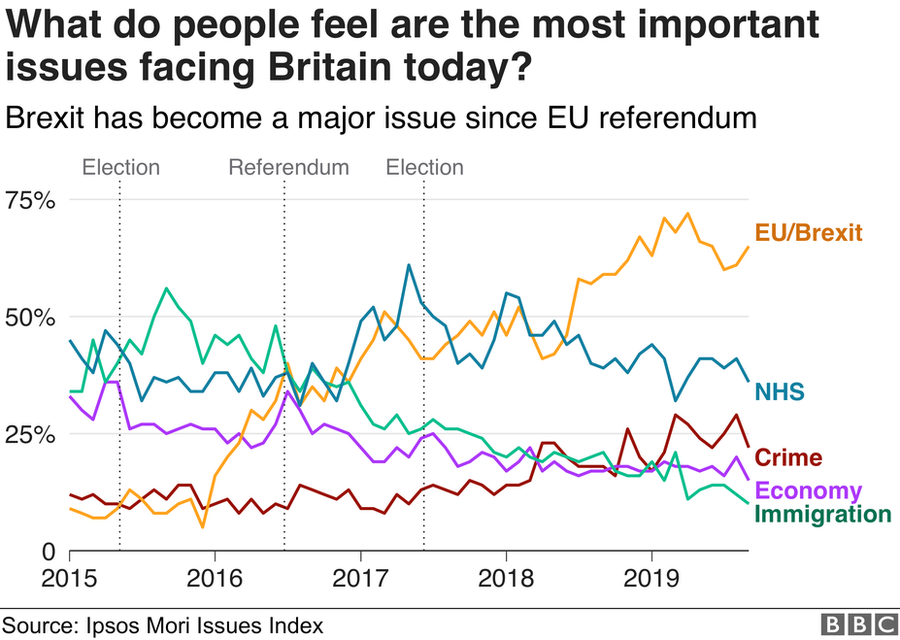
You can see what the parties have promised in our policy guide here.
'Happy to pay more'
Curtis Powell, 29, a videographer living in Nottingham city centre, said the NHS was the most important issue for him and he urged people to vote solely for whichever party was most likely to "keep it".
But he worried it was being ignored as politicians argued over other policies.
He said the importance of the NHS became clear to him when he visited his GP about a skin condition a few years ago.
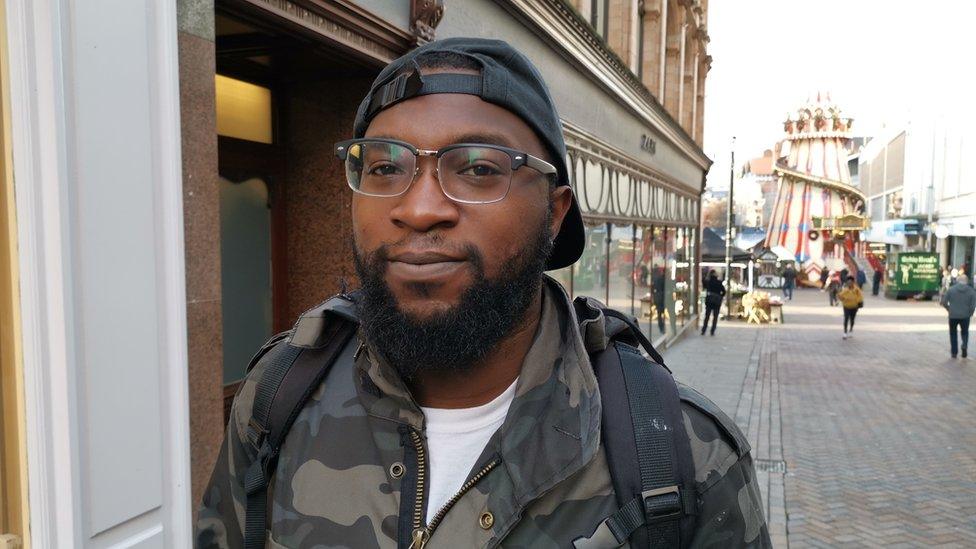
Curtis Powell says he would be happy to pay more for the NHS
Despite experiencing a long wait for treatment, he said he "couldn't have afforded to go private" and so the service the NHS provided was vital.
"I'd 100% be happy to pay more for it too," he added.
"It's getting slept on and we shouldn't neglect it for other agendas."
Related topics
- Published14 November 2019
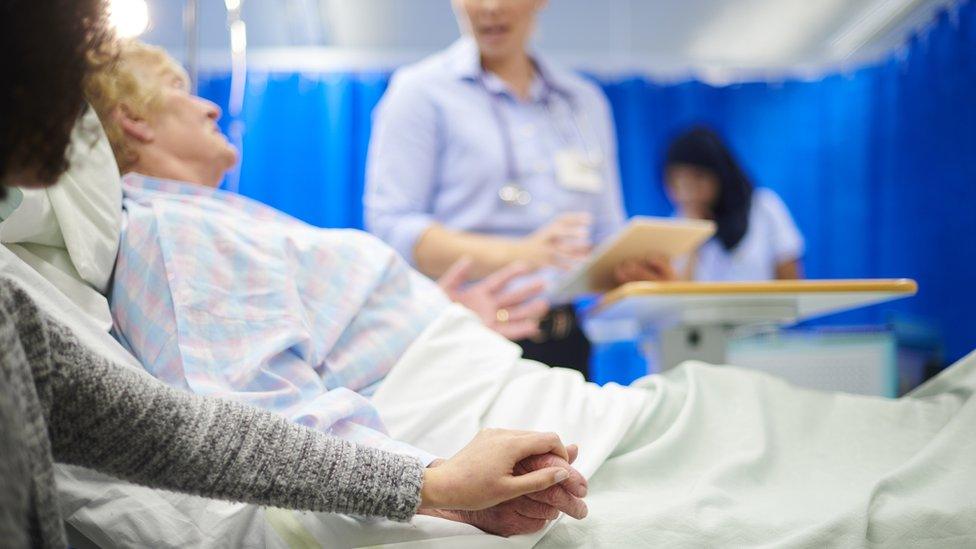
- Published7 November 2019

- Published6 November 2019
